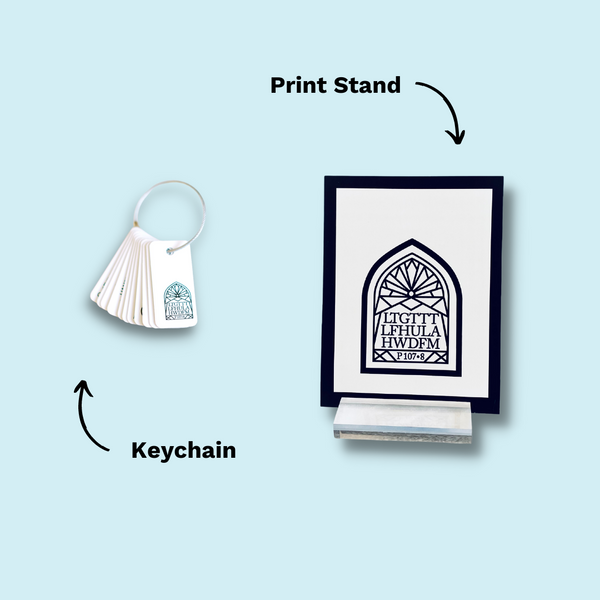"BUT TO YOU WHO ARE LISTENING I SAY: LOVE YOUR ENEMIES, DO GOOD TO THOSE WHO HATE YOU." — LUKE 6:27
I have a phrase I use with my kids when it comes to schoolwork or household chores: “Bare minimum is not enough.” Now, before you get worried that I’m too hard on my children, let me assure you—they are fine. My husband and I are teaching our kids to go the extra mile, to work with excellence, and to glorify God in whatever we do because we know well the pull to just “get by” with a minimal amount of effort. Slowly but surely, my kids are learning what my parents had to teach me. I’m having conversations with my sons that are eerily similar to the ones I had with my own mom.
“Did you clean your room?”
“Yes, Mom.”
“Bare minimum or actually clean?”
“Bare minimum,” they mumble before heading back to their rooms to do the job better.
My hope is that one day we won’t need these conversations anymore, but my kids aren’t unique in this. They’re a lot like you, and even more like me, when it comes to investing our whole selves and hearts into what God has put before us. In our flesh, we like to operate at bare minimum capacity so we can say we obeyed God without actually leaving our comfort zones. But he sees and he knows when we’re living more like the lost world around us than the Savior who loved us and gave himself up for us to make us new. While God is gracious and bears with us, he has called us to live holy, sacrificial lives that reflect his love to those around us. And not just those who look like us, act like us, or think like us.
As people who have been loved and saved through Jesus’ death on the cross, we—more than anyone else—know that real biblical love transcends comfort levels, differences, and hostility. Bare minimum love won’t be enough when you are faced with someone who isn’t very lovable in your estimation. Simply saying, “I love them” with gritted teeth and little to no contact isn’t exactly Christ-like love. It’s not the love you reserve for the people in your life who are safe or kind. But is it wrong to hold back genuine love from the people who don’t love us? Can’t we just get by with bare minimum love? Isn’t it safer to hold people at arm’s length who are different from us or who don’t like us?
Jesus speaks to this in Luke 6:32. “If you love those who love you, what credit is that to you? Even sinners love those who love them.” It’s not hard or uncomfortable or stretching to love people who love you and are kind to you. That’s easy love! But to love people who don’t love you, who don’t believe what you believe, who might even have hostile feelings about your faith in Jesus—that’s a biblical, sacrificial, Jesus-saturated kind of love.
God demonstrated his love for us in sending Jesus to die for us while we were still sinners, not after we became believers. He loved us when there was no reciprocal love in us, when there was no obedience or worship in our hearts, when we were “alienated and hostile in mind, doing evil deeds” (Colossians 1:21, ESV). This is the kind of love we are called to love others with, even those we might consider our enemies or who, in fact, are our enemies because they have declared themselves as such. “But love your enemies, and do good, and lend, expecting nothing in return,” Jesus said. Love them without expecting anything back, and “your reward will be great, and you will be sons of the Most High, for he is kind to the ungrateful and the evil” (Luke 6:35, ESV). Here’s the motivation for loving our enemies or those who are hostile to the gospel with a real, costly, no-holds-barred kind of love: this is how God has loved us. He is kind to the ungrateful and the evil, and while that’s a tough descriptor to swallow, that’s exactly who we were before he made us new creatures in Christ.
It's easy to love your friends, your family members who love you back, your neighbor who brings you a batch of cookies every few weeks. But if you only love those who are kind and grateful, how are you mirroring the sacrificial love of Jesus who loved sinners and made them saints? It’s good to love your friends and those who enjoy the same things you do. You never have to stop loving your friends! But our calling in Christ is to also extend love to those who may not want or appreciate it, to those who may not define love the same way we do, to those who may reject our gospel-infused love. But the calling and the reasons are still there: “Be merciful, even as your Father is merciful” (Luke 6:36, ESV)
Bare minimum love doesn’t go the extra mile for the one who is unkind to you, but Jesus-saturated love does. Bare minimum love won’t show someone the glory of the gospel and a transformed life. But biblical, forgiving, patient love will. When you express love by being there for someone who has been cruel to you, you show them how much Jesus has loved you. When you answer a harsh criticism with kindness, you point an enemy to the One who brings peace. When you speak of Christ with gentleness instead of defensiveness to the skeptic, you make way for more gospel conversations. When you open your heart to the lost and expect nothing in return, Jesus shines in your love. This kind of love can break down any barrier, for this is why God sent Jesus: to love us, to save us, and to free us so that we can share the good news with others who need love, salvation, and freedom.
Editor’s Note: We recognize that this verse may bring to mind the sensitive topic of abuse. If you have suffered abuse, or are currently suffering abuse, please tell a trusted person and get help. Setting up boundaries in situations of abuse can be good and right. Forgiveness and good intentions towards our enemies doesn't always look like fully restored relationships.




